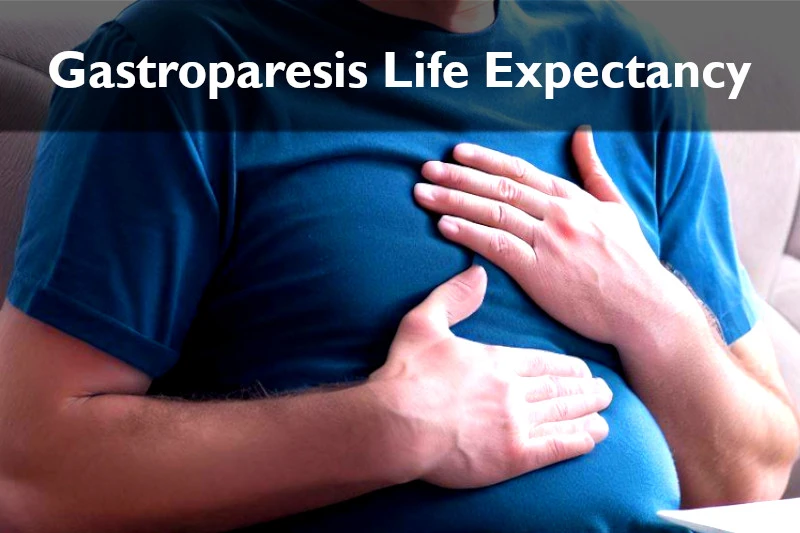Dear mothers, knowing your Kid’s Nutrition intake levels with the right food and nutrients are of paramount importance for their healthy growth and development.
There is no major difference between children and adults in the intake of types of nutrients in their daily diet. But the right amount of nutrients is what makes the big difference.
In the case of adults, they need nutrients only to maintain good health. But kids, they need nutrients also for their healthy growth, development, and well-being.
Required nutrition for kids varies depending on their age group. So, know the right amount of nutrients needed for children in each age group. What are the nutrients?
Nutrients are the vitamins and minerals, protein, carbohydrates, and Dietary fats that you consume with your diet.
Table of Contents
What are the main sources of nutrients?
Let us see the various sources of nutrients before we go into detail on the right amount of nutrient intake for the different age groups of children.
Protein
Protein is a building block nutrient for various parts of our body such as tissues, muscles, bones, skin, blood, and cartilage. The hair and nails use more protein for growth. Protein is also a source of energy as carbohydrates in your body. Even cells in your body require protein to build and repair themselves.
Lean Meat
Lean meat has high protein and low-fat content. Examples of lean meat are skinless chicken, red meat, turkey, and pork chops.
Sea Food
Seafood is highly rich in protein and of course very low in fat. Salmon fish is the best among all if you can afford it. It also has healthy fat along with omega-3 fatty acids which are really good for your heart.
Dairy Food
For children, dairy food is really good because in addition to the protein it also contains vitamins and minerals needed for their growth.
Milk, Cheese, low-fat yogurt, fortified soy beverages dairy food which has high protein in it.
Eggs
Eggs are rich in protein and cheaper in price. Children and adults can have an egg a day.
Beans
Beans are good because of their fiber nature. Just half a cup of beans is equivalent to an ounce of broiled steak. So, plan to have beans in your children’s diet.
Soy from Soybeans
Protein derived from the soybean is good for health. Intake of fat-free soy can significantly lower the cholesterol in your blood. Just 50 grams of soy protein does well for daily intake.
Other quick sources of protein
You can opt for energy bars or cereal bars to get protein fast. Choose cereal/energy bars that contain a minimum of six grams of protein. More is when energy/cereal bars are in low sugar and fat.
Vitamins and Essential Minerals
Vitamins and minerals play numerous roles in our bodies. They support making stronger bones, boosting immune systems, healing wounds, converting food into energy, and repairing cells.
Vitamins and minerals also function as chemical messengers between organs to organs and the brain to deliver instructions.
Vitamins
There are two types of vitamins. Water-soluble vitamins and fat-soluble vitamins.
Water-soluble vitamins
Our body does not store water-soluble vitamins. It is only through the intake of the right food, we can meet our daily need for water-soluble vitamins.
- Vitamin-B1 – soymilk, ham, acorn squash, watermelon
- Vitamin-B2 – yogurt, milk, whole, cheese, enriched grains, and cereals
- Vitamin-B3 – fish, poultry, meat, mushrooms, potatoes, and fortified whole grains
- Vitamin-B5 – broccoli, mushrooms, whole grains, avocados, and chicken
- Vitamin-B6 – fish, meat, legumes, poultry, soy products, tofu, and bananas
- Vitamin-B7 – fish, eggs, soybeans, and whole grains
- Vitamin-B9 – cereals, asparagus, broccoli, spinach, legumes, orange juice, and fortified grains
- Vitamin-B12 – milk, cheese, fish, poultry, cereals, meat, and fortified soymilk
- Vitamin-C – Citrus fruits, broccoli, potatoes, bell peppers, strawberries, spinach, Brussels, tomatoes, and sprouts
Fat-soluble vitamins
Through digestion, our body stores, the fat-soluble vitamins for later use in our liver and fat tissues.
- Vitamin-A: carrots, fish, liver, eggs, beef, shrimp, fortified milk, pumpkins, sweet potatoes, mangoes, and spinach
- Vitamin D: fatty fish, fortified milk, and cereals
- Vitamin E: leafy green vegetables, whole grains, nuts, and vegetable oils
- Vitamin K: eggs, milk, spinach, cabbage, kale, and broccoli
Essential Minerals
The minerals needed for our body are essential minerals. There are two types of essential minerals that are microminerals and microminerals.
Microminerals
- Sodium is important for proper functions of nerve transmission, muscle contraction, and fluid balance in our body. The main source of sodium is our salt intake with food.
- Chloride is required to balance the stomach acid and fluid in our system. Available in salt, vegetables such as tomatoes, lettuce, olives, celery, seaweed, and rye.
- Potassium is required for better nerve transmission, muscle contraction, and fluid balance in our body. Available in milk, meat, vegetables, fruits, and whole grains.
- Calcium is required to have strong bones and teeth. Also supports proper nerve functions, maintaining blood pressure, blood clotting, and overall immune health.
- Phosphorus just like calcium is required for the bones and teeth. Apart from this maintains acid balance in the stomach. Available in fish, meat, eggs, poultry, and processed food.
- Magnesium is needed for muscle contraction, nerves, and the immune system.
Sulfur is present in protein molecules. Available in proteins of fish, eggs, milk, meats, poultry, nuts, and legumes.
Microminerals (Trace minerals)
- Iron is important for the hemoglobin molecule in the red blood cells. These red cells carry oxygen across our bodies. Also important for metabolism.
- Zinc is required for making protein and is a part of enzymes. Zinc supports wound healing, sperm production, the immune system, and sexual maturation. Available in fish, poultry, meats, vegetables, and whole grains.
- Iodine is important for thyroid hormone functions that regulate development, growth, and metabolism. Available in dairy products, fish, seafood, and iodized salt.
Selenium is an antioxidant. Found in seafood, meats, and grain. - Copper is required for iron metabolism and is a part of several enzymes. Available in nuts, seeds, whole grains, drinking water, organ meats, and legumes.
- Manganese is needed for the enzymes. Present in plant foods
- Fluoride is required to support insulin functions to regulate the sugar levels in the blood.
- Molybdenum is needed for certain enzymes. Available in green vegetables, milk, and liver.
Apart from the above our system needs a small number of micro-minerals such as vanadium, silicon, nickel, and cobalt.
Carbohydrates
There are good and bad carbohydrates or carbs. At the same time, any good carbohydrates in excess are also bad for health. Excess carbohydrates cause obesity.
The three main carbohydrates
Sugar – This is the simplest form of carbohydrate. This is available in fruits, milk, vegetables, and other milk products. Sugar has three types of carbohydrates.
- Sucrose is from table sugar
- Lactose is from milk sugar and
- Fructose is from fruits
Starch – This is a complex carbohydrate made from multiple sugar units. Starch foods are found in grains, peas, cooked dry beans, and vegetables.
Fiber – This is also a complex carbohydrate like starch. Found in vegetables, fruits, whole grains, peas, and cooked dry beans
Carbohydrates are the main source of energy for your body. The digestion process breaks the sugar and starch into a simpler form. And then absorbed into the bloodstream as glucose (blood sugar).
Then the insulin in the blood pushes the glucose into the body cells as energy based on the need. The muscles and certain other cells store the remaining glucose. The excess glucose converts to fat.
Find here the complete details on carbohydrate health benefits and facts
Dietary Fat
Dietary fats are important for energy. It also helps cells grow in our bodies. Fat protects our organs and keeps our body warm at the right temperature.
Types of Dietary Fat
Saturated Fats are molecules saturated with hydrogen molecules. This fat is in solid form at normal room temperature. A higher intake of saturated fats can increase your cholesterol levels in the blood. Avoid taking saturated fat food in your daily diet.
Saturated Fat foods are pork, fatty beef, poultry with skin, lamb, lard and cream, cheese, and butter.
Trans Fats are unsaturated fatty acids. The industries produce cooking oil through the hydrogenation process from vegetables. A high intake of trans fat can lead to heart complications.
Trans fats foods are cooking oil, margarine, snacks, and fried foods
Monounsaturated Fat is a fat simple, provides nutrients to cells, and is good for overall health. Monounsaturated fat reduces the risk of heart disease by controlling the bad cholesterol levels in the blood. It also contains vitamin E, an antioxidant that is good for the body.
Monounsaturated fat foods are olive oil, peanut oil, canola oil, seeds, sunflower oil, and sesame oil.
Polyunsaturated Fat is similar to monounsaturated fat and is good for health. It reduces the bad cholesterol levels in the blood and thus reduces the risk of having heart disease.
Polyunsaturated fat foods are corn oil, sunflower oil, and soybean oil.
Kids Nutrition Guide
We discussed the nutrients and sources in detail above. Now we can see how to balance the right food for different age groups of children for maximum benefits.
- We encourage children to eat fruits as much as they like. Eat fruits in form of fresh, dried, frozen, canned, or fresh juice with no added or low added sugar levels.
- Serve children a variety of vegetables in their meals.
- Make sure the intake of whole grains foods, such as oatmeal, whole-wheat bread, quinoa, popcorn, brown rice, and wild rice. Reduce the intake of refined grain foods such as pasta, rice, and white bread.
- For growing children, dairy food is really good are low in fat or fat-free.
- Try and avoid children taking saturated fat, trans fat, and added sugar in their diets.
Kid’s nutrition daily dietary guidelines for Non-Vegetarians
Kid’s nutrition daily diet guideline (non-vegetarians): Children from ages 2 to 3
| Estimated Calorie | Male | Female |
| Sedentary | 1000 | 1000 |
| Moderately | 1000 to 1400 | 1000 to 1200 |
| Active | 1000 to 1400 | 1000 to 1400 |
| Food Group | Male | Female |
| Vegetables | 1 cup to 1.5 cup | 1 cup to 1.5 cup |
| Fruits | 1 cup to 1.5 cup | 1 cup to 1.5 cup |
| Grains | 3 oz to 5 oz | 3 oz to 5 oz |
| Dairy | 2 cups to 2.5 cups | 2 cups to 2.5 cups |
| Protein | 2 oz to 4 oz | 2 oz to 4 oz |
| Oils | 2 oz to 4 oz | 2 oz to 4 oz |
Kid’s nutrition daily diet guideline (non-vegetarians): Children from ages 4 to 8
| Estimated Calorie | Male | Female |
| Sedentary | 1200 to 1400 | 1200 to 1400 |
| Moderately | 1400 to 1600 | 1400 to 1600 |
| Active | 1400 to 2000 | 1400 to 1800 |
| Food Group | Male | Female |
| Vegetables | 1 cup to 2.5 cups | 1.5 cups to 2.5 cups |
| Fruits | 1 cup to 2 cups | 1 cup to 1.5 cups |
| Grains | 4 oz to 6 oz | 4 oz to 6 oz |
| Dairy | 2.5 cups to 3 cups | 2.5 cups to 3 cups |
| Protein | 3 oz to 5.5 oz | 3 oz to 5 oz |
| Oils | 17 g to 27 g | 17 g to 24 g |
Kid’s nutrition daily diet guideline (non-vegetarians): Children from ages 9 to 13
| Estimated Calorie | Male | Female |
| Sedentary | 1600 to 2000 | 1400 to 1600 |
| Moderately | 1800 to 2200 | 1600 to 2000 |
| Active | 2000 to 2600 | 1800 to 2200 |
| Food Group | Male | Female |
| Vegetables | 2 cups to 3.5 cups | 1.5 cup to 3 cups |
| Fruits | 1.5 cups to 2 cups | 1.5 cup to 2 cups |
| Grains | 5 oz to 9 oz | 5 oz to 7 oz |
| Dairy | 3 cups | 2.5 cups to 3 cups |
| Protein | 5 oz to 6.5 oz | 4 oz to 6 oz |
| Oils | 22 g to 34 g | 17 g to 29 g |
Kid’s nutrition daily diet guideline (non-vegetarians): Children from ages 14 to 18
| Estimated Calorie | Male | Female |
| Sedentary | 2000 to 2400 | 1800 |
| Moderately | 2400 to 2800 | 2000 |
| Active | 2800 to 3200 | 2400 |
| Food Group | Male | Female |
| Vegetables | 2.5 cups to 4 cups | 2.5 cups to 3 cups |
| Fruits | 2 cups to 2.5 cups | 1.5 cups to 2 cups |
| Grains | 6 oz to 10 oz | 6 oz to 8 oz |
| Dairy | 3 cups | 3 cups |
| Protein | 5.5 oz to 7 oz | 5 oz to 6.5 oz |
| Oils | 27 g to 51 g | 24 g to 31 g |
Kid’s nutrition daily dietary guidelines for Vegetarians
Vegetarian food includes Soya products such as tofu and other processed soy products, nuts, seeds, legumes, and whole grains needed in an increased quantity compare to non-vegetarian nutrient requirements. This is because the sources of food such as meat, poultry, and seafood are excluded from vegetarian food. However, the guidelines given below include the intake of eggs and dairy products.
Vegetable group – Dark green vegetables, red and orange vegetables, legumes (beans & peas), starchy vegetables, and other vegetables.
Protein Food – Eggs, legumes (beans & peas), soy products, nuts, and seeds.
Kids’ nutrition daily diet guideline (vegetarians): Children from ages 2 to 3
| Estimated Calorie | Male | Female |
| Sedentary | 1000 | 1000 |
| Moderately | 1000 to 1400 | 1000 to 1200 |
| Active | 1000 to 1400 | 1000 to 1400 |
| Food Group | Male | Female |
| Vegetables | 1 cup to 1.5 cups | 1 cup to 1.5 cups |
| Fruits | 1 cup to 1.5 cups | 1 cup to 1.5 cups |
| Grains | 3 oz to 5 oz | 3 oz to 5 oz |
| Dairy | 2 cups to 2.5 cups | 2 cups to 2.5 cups |
| Protein | 1 oz to 2 oz | 1 oz to 2 Oz |
| Oils | 15 g to 17 g | 15 g to 17 g |
Kids’ nutrition daily diet guideline (vegetarians): Children from ages 4 to 8
| Estimated Calorie | Male | Female |
| Sedentary | 1200 to 1400 | 1200 to 1400 |
| Moderately | 1400 to 1600 | 1400 to 1600 |
| Active | 1600 to 2000 | 1400 to 1800 |
| Food Group | Male | Female |
| Vegetables | 1.5 cups to 2.5 cups | 1.5 cups to 2.5 cups |
| Fruits | 1 cup to 2 cups | 1 cup to 1.5 cups |
| Grains | 4 oz to 6.5 oz | 4 oz to 6.5 oz |
| Dairy | 2.5 cups to 3 cups | 2.5 cups to 3 cups |
| Protein | 1.5 oz to 3.5 oz | 1.5 oz to 3 oz |
| Oils | 17 g to 27 g | 17 g to 24 g |
Kids’ nutrition daily diet guideline (vegetarians): Children from ages 9 to 13
| Estimated Calorie | Male | Female |
| Sedentary | 1600 to 2000 | 1400 to 1600 |
| Moderately | 1800 to 2200 | 1600 to 2000 |
| Active | 2000 to 2600 | 1800 to 2200 |
| Food Group | Male | Female |
| Vegetables | 2 cups to 3.5 cups | 1.5 cups to 3 cups |
| Fruits | 1.5 cup to 2 cups | 1.5 cup to 2 cups |
| Grains | 5.5 oz to 9.5 oz | 5 oz to 7.5 oz |
| Dairy | 3 cups | 2.5 cups to 3 cups |
| Protein | 2.5 oz to 4.5 oz | 2 oz to 3.5 oz |
| Oils | 22 g to 34 g | 17 g to 29 g |
Kids’ nutrition daily diet guideline (vegetarians): Children from ages 14 to 18
| Estimated Calorie | Male | Female |
| Sedentary | 2000 to 2400 | 1800 |
| Moderately | 2400 to 2800 | 2000 |
| Active | 2800 to 3200 | 2400 |
| Food Group | Male | Female |
| Vegetables | 2.5 cups to 4 cups | 2.5 cups to 3 cups |
| Fruits | 2 cups to 2.5 cups | 1.5 cup to 2 cups |
| Grains | 6.5 oz to 10.5 oz | 6.5 oz to 8.5 oz |
| Dairy | 3 cups | 3 cups |
| Protein | 3.5 oz to 6 oz | 3 oz to 4 oz |
| Oils | 27 g to 51 g | 24 g to 31 g |
Information on Kids Nutrition healthy diet guidelines is sourced from the Office of Disease Prevention and Health Promotion of the United States.










